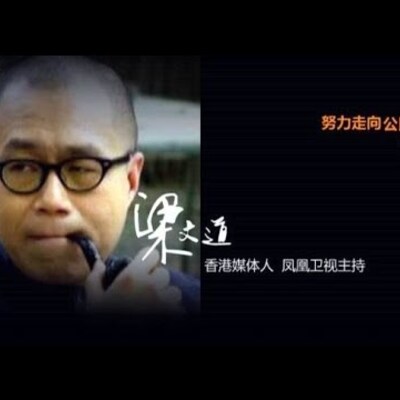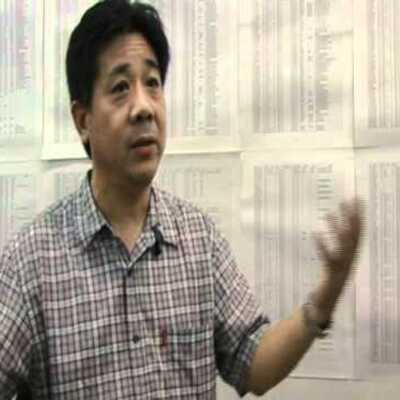
The Memo
In the spring of 2022, a wave of COVID-19 exploded in Shanghai. Under the policy of “Zero COVID,” 24 million residents were put under forced lockdown. Filmmakers and reporters used their phones, televisions, the internet, and other materials to capture scenes of lockdown and disputes between officials and civilians in Shanghai. Producers of this short film titled <i>The Memo</i> believe that it is necessary to record this historic episode in order to prevent our memories from fading away.
The production team, which was founded in 2020, strives to create works about the lower classes of Chinese society. <i>The Memo</i> was nominated for the Clermont-Féron Short Film Festival.

Jiang Qisheng: Civilian Report on the Situation of June 4 Victims in China
The Tiananmen Square massacre on June 4, 1989 and the subsequent mass arrests and purges created tens of thousands of June Fourth victims. Among them were June Fourth victims who fell into a pool of blood, the June Fourth disabled who were shot, the families of the June Fourth victims and the severely disabled, the June Fourth prisoners of conscience who were sentenced to imprisonment or re-education-through-labor, and the June Fourth victims who were subjected to other political persecution. On the occasion of the 20th anniversary of June Fourth, as part of Chinese civil society's efforts to recover the historical truth and rebuild historical memory, this report gives a basic description of the suffering of the June Fourth victims and their arduous journey over the past 20 years. It also analyzes the systemic factors that have contributed to the victims' suffering and proposes corresponding recommendations on how to change their living conditions.

Huang Sha, 2019 National Survey on the Treatment of Detainees in Custodial Facilities
This report focuses on the human rights situation in detention centers in China. Mr. Huang Sha distributed the questionnaire to the practicing lawyers he knew, and then the practicing lawyers took the questionnaire and filled it out in the form of questions and answers when they met detainees in the detention centers. The questionnaires were then collected and counted, resulting in a research report. The span of time for filling out the questionnaire in the detention center is: from July 2, 2019 to November 19, 2019. There were 101 valid questionnaires recovered.

Working toward a Civil Society (Episode 20): Zhang Yaojie
How can China build a true civil society? Since 2010, independent director Tiger Temple has conducted a series of interviews with scholars and civil society participants.

New Citizens’ Trial
In June 2010, scholars and activists Xu Zhiyong, Teng Biao, Wang Gongquan, Li Xiongbing, Li Fangping, Xu Youyu and Zhang Shihe (Tiger Temple) initiated the signing of the “Citizen's Pledge”, which called on Chinese citizens to “abide by principles of democracy, and the rule of law, safeguard the rights and livelihood of the people, and promote good governance”. On May 29, 2012, Dr. Xu Zhiyong, one of the founders of the pro-democracy movement “Open Constitution Initiative” (Gongmeng), published an article entitled “China's New Citizen Movement”, officially launching the <a href=“https://web.archive.org/web/20121226221847/http://biweekly.hrichina.org/article/1575”>“New Citizen Movement”</a>.
The goal of the New Citizens Movement is a free China governed by democracy and rule of law, a vibrant civil society, and a new national spirit of “freedom, justice, and love”. It aims to promote political and social transformation from authoritarianism to constitutionalism, and Chinese people will be treated as citizens, not subjects of the ruling class. Activities of the New Citizen Movement include advocating for equal rights in education, public disclosure of officials' properties, and organizing local citizen gatherings. (For more information on the New Citizens Movement, see the <a href=“https://cmcn.org/”>Chinese Citizens Movement </a>website. Organizers and participants in the New Citizens Movement have been subjected to repression and persecution.
On July 5, 2012, several hundred parents gathered at the Ministry of Education's Petitioning Office, displaying banners and chanting slogans demanding that the government protect migrant children’s right to education, before being stopped by police, who also beat them. As a result of this and other advocacy activities, New Citizens Movement organizers Xu Zhiyong, Zhao Changqing, and Ding Jiaxi were arrested in 2013 and charged with gathering a crowd to disrupt order in a public place, and their cases were heard for the first time at different levels of court in Beijing on January 22, 2014, on the eve of the Chinese New Year. All were sentenced to jail.
This documentary includes footage of the parents' protest in July 2012, and outside the courthouse at Xu Zhiyong's trial on January 22, 2014, as well as interviews with family members of the arrested activists, their lawyers, and academics, and supporters of the movement.On the day of his trial, hundreds of people showed up outside the courthouse in support, invoking Article 35 of the Constitution to point out that the case was an unfair trial that violated citizens' freedom of speech and expression.
In the film, Xu Zhiyong says in an interview that the New Citizens Movement wants to solve social issues through judicial processes, and that he believes it is important to take into account the perspectives of different stakeholders. Even with such a moderate stance, the authorities still harshly suppressed him and portrayed him as an enemy of the state. Scholar Guo Yuhua commented on the case : “If we wait for a ready-made civil society, there is none. Activism is to open up space where there is none, to create gaps where there are no gaps, and to expand it gradually.”

Working toward a Civil Society (Episode 47): Liang Wendao
How can China build a true civil society? Since 2010, independent director Tiger Temple has conducted a series of interviews with scholars and civil society participants.

Let the Sunshine Reach the Earth
Wang Lihong is a Beijing netizen, civilian journalist, and public service volunteer. Wang was accused of “picking quarrels and provoking trouble” for supporting three netizens in Fujian. On August 12, 2011, the case was heard for the first time in the Wenyuhe Court of the People's Court of Chaoyang District, Beijing. This film includes interviews with Wang Lihong's relatives, friends, defense lawyers and netizens, and records the historical scene of onlookers in the courts.
Ai Xiaoming’s film “Postcard,” also released in 2011, elaborates Wang Lihong’s activism in broader strokes, while “Let the Sunshine Reach the Earth” focuses on the process of her trial.
This film is in Chinese with Chinese subtitles.

Taishi Village
In the fall of 2005, residents of Taishi Village became increasingly frustrated and angered by the sale of land by village officials; hundreds of villagers signed a petition calling for the removal of the village chief. The villagers occupied the village committee’s financial office and expressed their demands through sit-ins and other forms of protests. The government dispatched the police to arrest village activists, but the villagers insisted on starting a formal recall process. The government finally sent a team to the village to verify the signatures for the petition.
<i>The Taishi Village</i> recall incident generated attention from Chinese and foreign media, and caused uneasiness among local government officials. On September 12, 2005, police arrested dozens of villagers who were participating in a sit-in in the village committee room. Despite the pressure, villagers elected a committee to remove the village committee director. The government then dispatched more men to exert pressure, forcing elected members to withdraw one by one. Hired patrol teams eventually drove lawyers and reporters out of the village.
This documentary records the protest scenes and tragic ending of Taishi village’s movement for autonomy, and presents the surging rights consciousness in rural areas in Guangdong. This incident demonstrates villagers’ ability to exercise their right to vote and the government’s inertial approach to grassroots democracy movements.
This documentary is in Chinese with Chinese subtitles.

Working toward a Civil Society (Episode 40): Huazhe
How can China build a true civil society? Since 2010, independent director Tiger Temple has conducted a series of interviews with scholars and civil society participants.

Working toward a Civil Society (Episode 6): He Fang
How can China build a real civil society? Since 2010, independent director Tiger Temple sat for a series of interviews with scholars and civil society actors.

Working toward a Civil Society (Episode 18): Feng Zhenghu
How can China build a true civil society? Since 2010, independent director Tiger Temple has conducted a series of interviews with scholars and civil society participants.

Working toward a Civil Society (Episode 28): Ai Xiaoming (continued)
How can China build a true civil society? Since 2010, independent director Tiger Temple has conducted a series of interviews with scholars and civil society participants.

Working toward a Civil Society (Episode 38): Wu Gan (The Butcher)
How can China build a true civil society? Since 2010, independent director Tiger Temple has conducted a series of interviews with scholars and civil society participants.

Working toward a Civil Society (Episode 48): Chen Hongguo
How can China build a true civil society? Since 2010, independent director Tiger Temple has conducted a series of interviews with scholars and civil society participants.

Working toward a Civil Society (Episode 9): Zhang Hui
How can China build a true civil society? Since 2010, independent director Tiger Temple has conducted a series of interviews with scholars and civil society participants.

Working toward a Civil Society (Episode 50): Zhang Baocheng
How can China build a true civil society? Since 2010, independent director Tiger Temple has conducted a series of interviews with scholars and civil society participants.

Working toward a Civil Society (Episode 34): Cheng Chao-Fu
How can China build a true civil society? Since 2010, independent director Tiger Temple has conducted a series of interviews with scholars and civil society participants.

Working toward a Civil Society (Episode 28): Ai Xiaoming
How can China build a true civil society? Since 2010, independent director Tiger Temple has conducted a series of interviews with scholars and civil society participants.

Working toward a Civil Society (Episode 49): Ding Jiaxi
ow can China build a true civil society? Since 2010, independent director Tiger Temple has conducted a series of interviews with scholars and civil society participants.

Enemy of the State
On February 9, 2010, Tan Zuoren was tried in the Chengdu Intermediate People’s Court for the crime of inciting subversion against the state. Ai Xiaoming and her team recorded the three days before and after the verdict, the mindsets of Tan Zuoren’s friends and relatives, and how the lawyers carried out their work.
This film is in Chinese with Chinese subtitles.